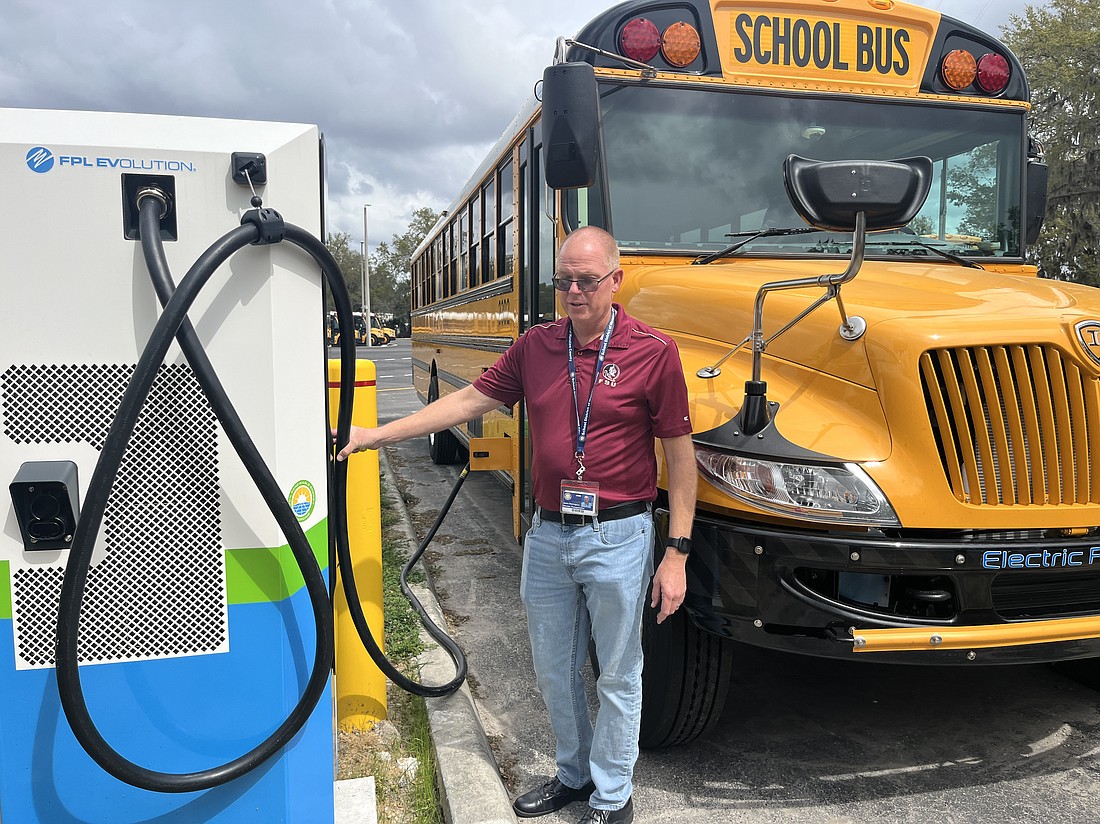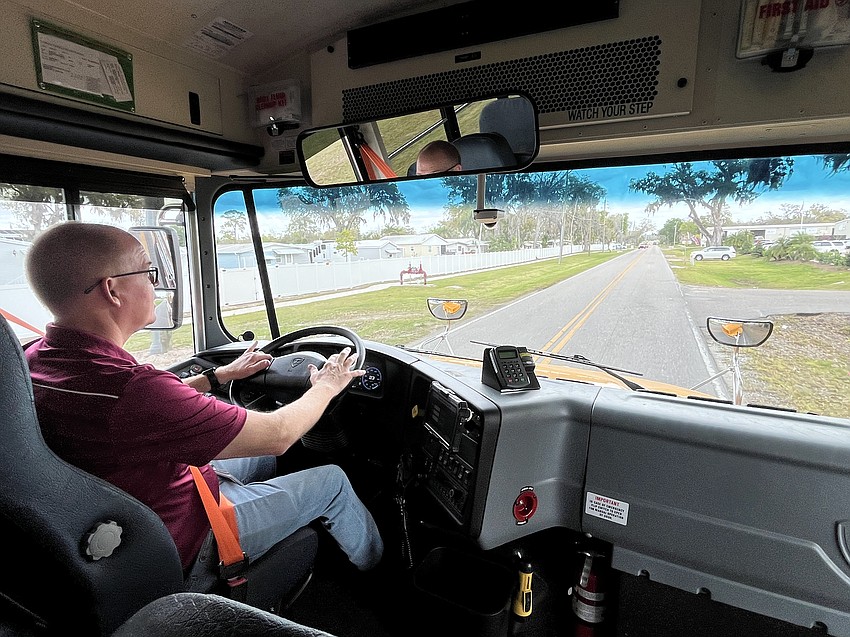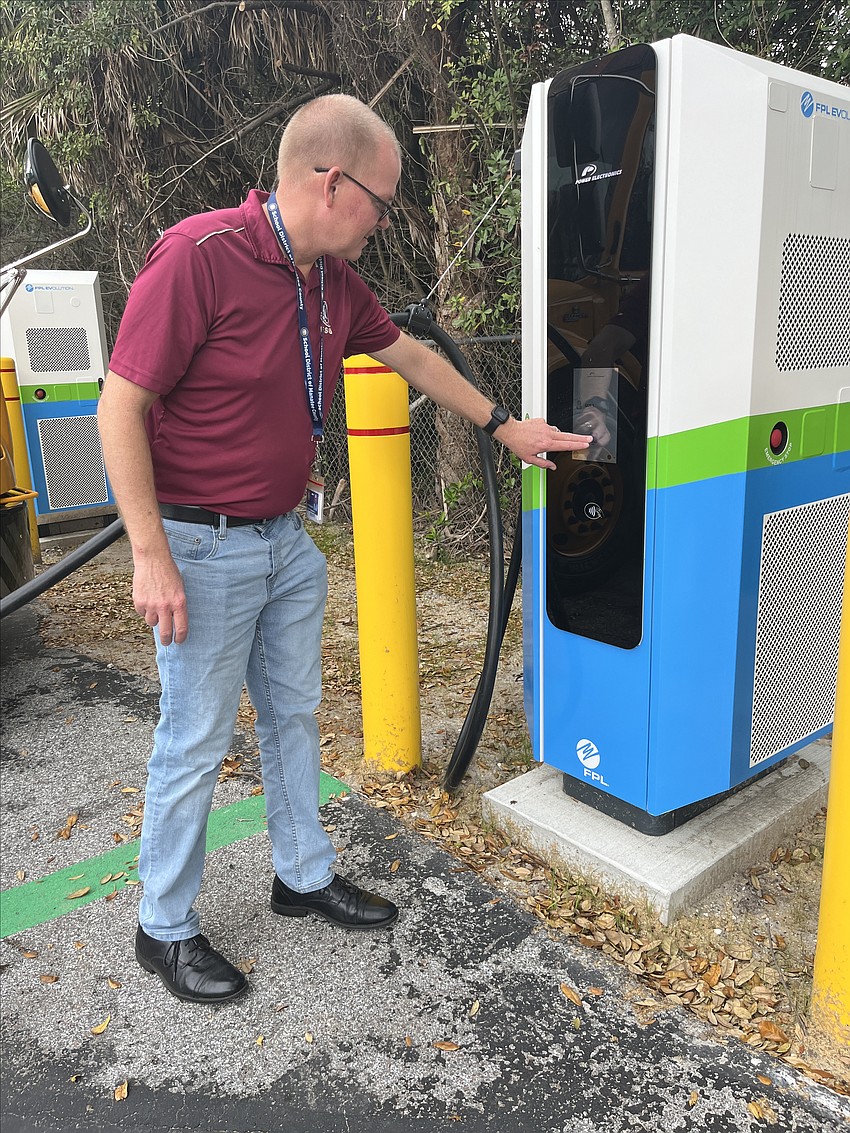- May 12, 2025
-
-
Loading

Loading

Jamie Warrington, the director of transportation for the School District of Manatee County, drove around the Matzke Support Center in silence.
Unlike a regular diesel buses, the electric bus didn’t make noise.
“It’s going to amplify the noise of the students,” Warrington said with a laugh.
Two years after announcing the project, the School District of Manatee County is rolling out its four new electric buses by the end of March.
Warrington said he’s thrilled to finally have the buses ready to be used.
The district received a grant from the Florida Department of Environmental Protection’s Electric Bus Project to purchase up to 20 electric school buses. The grant covers 70% of the cost of an electric bus, which Warrington said is about $460,000.
The district also partnered with Florida Power & Light, which provided and installed 20 60-kilowatt charging stations at no cost to the district. Florida Power & Light will be responsible for the maintenance, repairs and upkeep of the charging stations for 10 years. Then the responsibility will be turned over to the district.
Warrington said the district chose to buy two different types of buses to test what would best work for the district. One bus is a two-battery bus that will drive about 130 miles on one charge, and the other type of bus is a three-battery bus that will drive around 200 miles.

All four buses are equipped with the same safety and security features as the district’s diesel buses, including six cameras.
Four bus drivers and staff will undergo training March 14 and technicians also will undergo more training before the projected rollout of the buses on March 19.
A route on Anna Maria Island, a route in Palmetto and two routes in Bradenton were selected as trial runs as the district begins using the buses. All the routes are no more than 90 miles. The routes will not be altered so the district can obtain consistent data from the buses for the rest of the school year, Warrington said.
Warrington said most of the district’s routes, especially in the eastern portion of the county, have too high a mileage for the electric buses to be used.
“There’s a very good likelihood that this bus will never go to Myakka Elementary or even Lakewood Ranch, at least this year,” he said.
When the district opens a second bus facility in the northeastern part of Manatee County, Warrington said the district can consider adding charging stations at that facility that would allow the electric buses to be used in the area.
Warrington said the routes were selected because they are in high traffic areas, especially during season when traffic increases.

“An electric bus is much more valuable in stop-and-go traffic because every time you hit the brake pedal, it regenerates the battery,” he said. “Whereas, in a diesel bus, that’s just wear and tear on the brakes, and it’s not as good in terms of fuel. … If a bus has to go 35 miles out east without hitting the brakes, it’s fairly draining on the battery.”
Hitting the brakes in an electric bus captures the kinetic energy from braking and converts it into the electrical power that charges the vehicle's high voltage battery.
The drivers will plug the buses in to charge them every time they come back from their routes. Warrington said it will take between four and six hours to fully charge a bus, which gives the buses plenty of time to charge between when a driver will return from a morning route and leave for an afternoon route.
Warrington said the plan is to have all bus drivers undergo training for the electric buses next summer. The training will be required of all new bus drivers.
The buses will be used for summer school routes once those routes have been determined, Warrington said.
After collecting data, Warrington said the district will review it and determine whether to change routes, and to make a decision whether to purchase more buses.
Warrington said the district might consider adding electric service vehicles to its fleet as well.